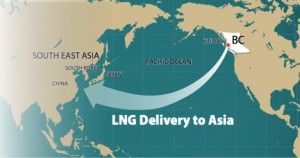I have worked in the marine eco-tourism industry for the last 10 years and in that time have developed my own eco-tourism company based in Tofino, BC. Leveraging my experience and looking forward at the next 10 years of my professional career, my goal is to be part of an industry that provides an essential service to the global community. Commercial marine shipping allows me to serve others and stay connected to the waterways.
The IBISWorld database classifies commercial marine shipping as “The Global Deep-Sea, Coastal & Inland Water Transportation”. According to IBISWorld figures, the industry has taken a fall of 0.6% over the past five years to a present value of $166.1 billion. However, the cruise industry, one branch of this dynamic industry, has cushioned the fall and in 2014, it is forecast that cruising will provide the industry with 5.1% boost.
Some additional positive news for marine shipping appears to be on the horizon as “the industrial production index of OECD countries is expected to increase in 2013”. This index has a direct correlation to the marine shipping industry – as production increases in the OECD countries, the need for transportation of supplies and products also increases. This is backed up by the fact that the world price of dry bulk shipping is predicted to increase indicating that the global demand for raw materials is on the rise. Emerging markets play a major role, specifically the Asian markets, as they have shown some growth throughout 2008 and 2009. Post the global economic collapse, Asian markets have lead the shipping industry as its countries account for 40.0% of goods loaded and 55.0% of good offloaded.
The increasing price of crude oil has impacted the global marine shipping industry both negatively and positively. Negatively on one hand because ships are powered by fuel and as fuel costs climb so do vessel operating costs. Positively on the other hand because demand for fuel did not decrease as oil prices increased. In other words, the global economy continues to have a need to transport oil and other energy products such as liquefied natural gas (LNG) around the world.
Both the BC and federal governments have prioritized LNG as a resource that can be exported off of the west coast to Asian markets. This is one sector of marine shipping that I am interested in participating in. Currently, there are 6 LNG projects proposed in BC and it is forecasted that these projects will account for $1 trillion in cumulative GDP between now and the year 2046 (Ministry of Energy, Mines and Natural Gas). As these projects move forward and become operational, the shipment of LNG product via ocean going tankers to offshore markets will be required which in turn will indirectly increase every aspect of shipping activity along our coastline.
In addition to the LNG activity, plans to export Canada’s oil resources are an additional opportunity for the marine shipping industry. Last month, the Enbridge Northern Gateway Project hearings for the construction of a new oil export pipeline concluded. Those working in the marine shipping industry and the people of BC anticipate the recommendations by the Joint Review Panel by the end of 2013. Should this project receive a permit and become operational, tankers will be transporting oil to Asian markets off of BC’s coast.
Based on IBISWorld figures and industry forecasts, I am optimistic about the increasing trends in global marine shipping. My research has directed me to Maersk A/S as “the largest shipping company in the world” at 18.3% of the market and then more locally to Seaspan and Teekay. I hope to take part in the International Exchange Program and take classes at Copenhagen Business School. This school is closely connected to Maersk and will hopefully provide me with some further insight into the company and the world of marine shipping.
British Columbia’s Liquefied Natural Gas Strategy – One Year Update. 2013.
Sources:
Lauren Setar. IBISWorld Industry Report H4821-GL – Global Deep-Sea, Coastal & Inland Water Transportation. February 2013.
British Columbia’s Liquefied Natural Gas Strategy – One Year Update. 2013.

